How IS has been making enemies in Afghanistan
- Published
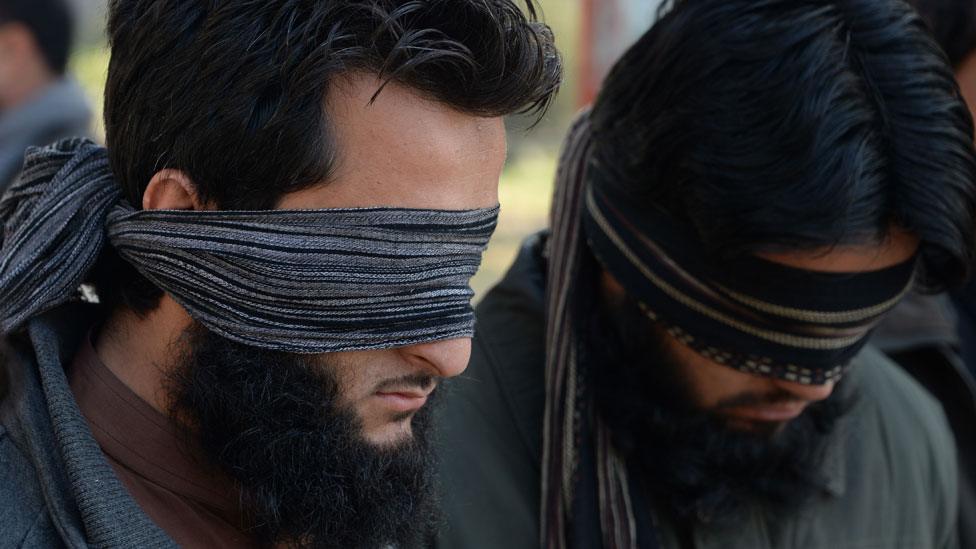
Alleged IS fighters captured in neighbouring Nangarhar province
You have probably heard about the rise of so-called Islamic State in Afghanistan. The militant group claims to be building a new province of what it calls "the Caliphate" in the mountains in the east of the country. But it has made some serious tactical errors, says BBC Afghan Service reporter, Sayed Abdullah Nizami.
I am from Kunar, one of the provinces where so-called Islamic State is strongest. I went to the local school and lots of my friends ended up as jihadi fighters, some have even joined IS.
I suppose lots of people reading this would be surprised and maybe even frightened by that. But joining a jihadi group isn't unusual around here, in fact it is a kind of career choice. There isn't much work so young men look for other things to do and the jihadi groups have money and guns.
I was lucky. My family is not rich but I managed to get a job as a reporter and that allowed me to watch as IS emerged and grew.
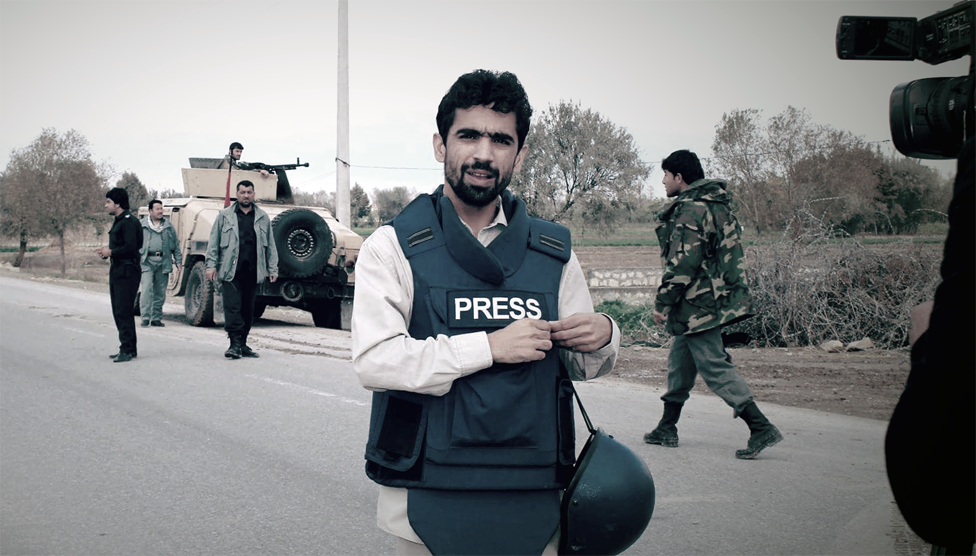
No Afghan will be surprised that Kunar was one of the first places where IS - or Da'esh as we call it - appeared. The region has always had a reputation for being difficult to control.
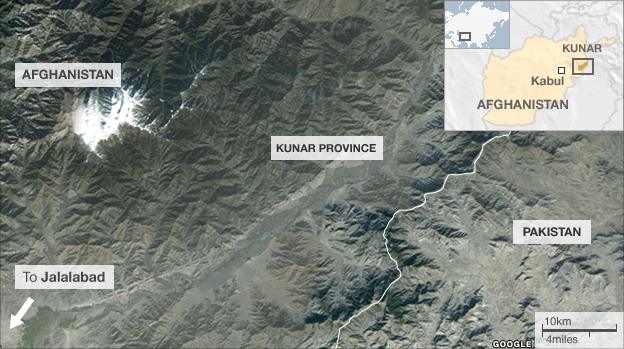
There are lots of different tribal groups but they all tend to ignore the government in Kabul, whoever is in charge. Neither the Americans or the Taliban ever really held sway.
We pride ourselves on our warrior traditions. My own father was a jihadi, who fought with the mujahideen against the Soviet occupation of Afghanistan, and I'm proud my dad fought for his country. One of the things that persuaded him to do this was religion - he hated the fact that foreign atheists had taken over our country.
He wasn't the only one - lots of the leaders of Afghanistan's government are also former mujahideen. But our religious traditions in Kunar are a bit different from those in the rest of the country.
Most Afghans follow the Hanifi tradition of Islam but around here many of us grew up in the Wahhabi tradition - a very orthodox, hardline form of Islam, which teaches that people should try to live as the first Muslims did.
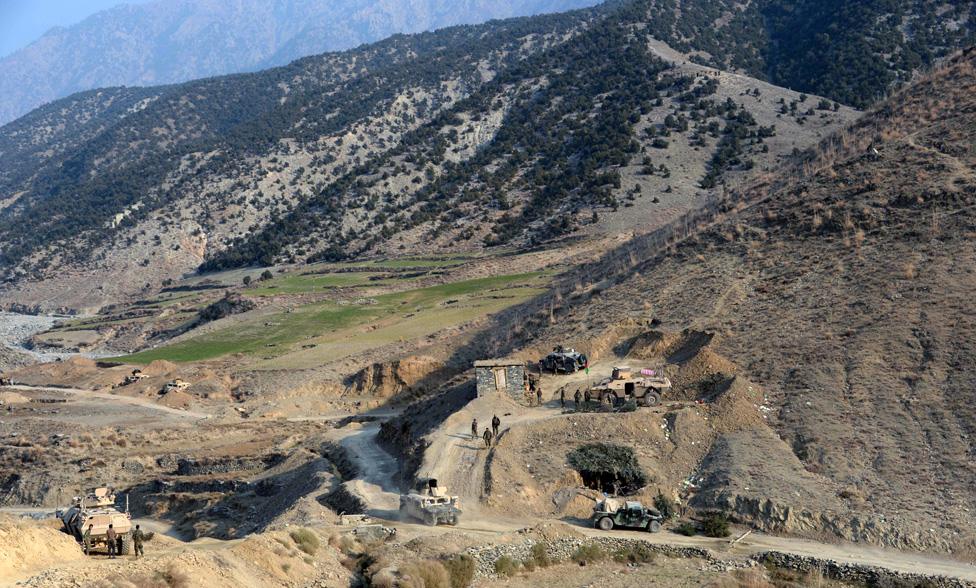
Afghan security personnel patrol during an anti-Taliban operation in the eastern Kunar province
The founder of Wahhabism in Afghanistan, Sheikh Jamil, was from a town in Kunar. He got a lot of money from the Saudis to build madrassahs and also used it to support insurgent groups.
The extremist ideologies he promoted were popular when I was growing up but actually most of my friends were not really that religious. What they were interested in was the opportunity to fight.
The headmaster was a big influence. He used to encourage boys to join the jihadis. Back then it was more about groups like Hizb Islami than the Taliban, which has always been a Hanifi movement.
But when foreign troops invaded in 2001 there was a surge of support for the Taliban. My headmaster joined them, and he is now the commander of an important Taliban unit up on the border with Pakistan.
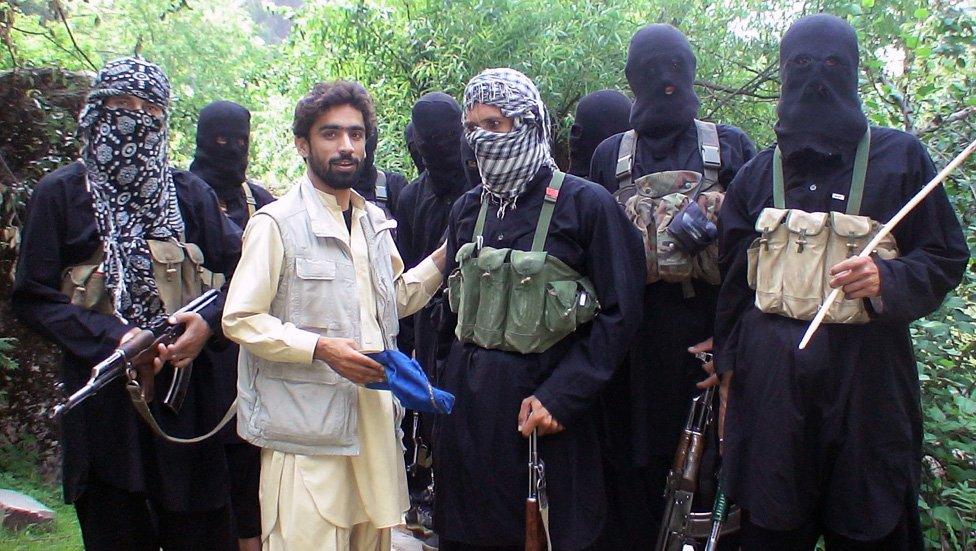
This group was killing Taliban in 2013 - it turned out to be a Taliban hit squad targeting members who communicated with the Afghan government.
I first heard talk of Da'esh early in 2014. To be honest, at first I didn't think it was anything special, just another international jihadi movement. There have been a few of those around here, including al-Qaeda.
But soon it became clear that Da'esh was different.
Da'esh was built up by a small group of fighters, maybe 60 or 70 in total. Most of them came from over the border in Pakistan and it was obvious that they were being funded from abroad.
Right from the start Da'esh had lots of money and weapons. It was also very well organised, better organised than the Taliban ever was.
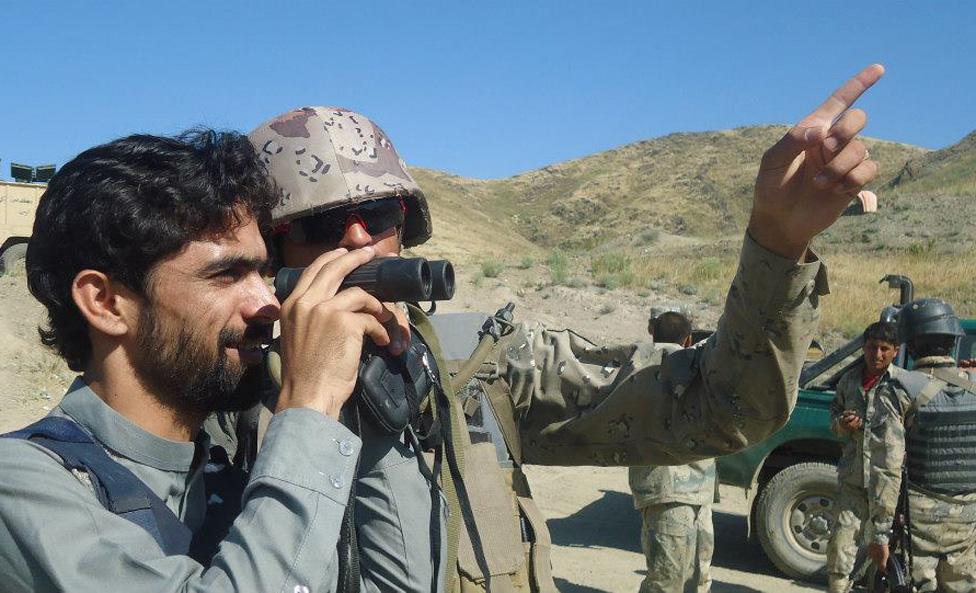
Nizami with Afghan Border Police in Nangarhar's Goshta District where skirmishes took place between Pakistan and Afghan border forces
They did not try to "tax" local people, something the Taliban and other jihadis do. That made them popular.
In July 2014 I met one of the organisers of Da'esh in Afghanistan. He called me up out of the blue and asked if I would like to interview him. He knew I was a journalist and it was clear he wanted publicity.
The man told me he was printing Da'esh magazines and propaganda in Pashto, the local language. He said the movement was really gaining ground in Kunar and two neighbouring provinces, and showed me a video of group of people pledging allegiance to Abu Bakr al-Baghdadi, the head of Da'esh.
I could tell he was right because shortly after I met him two big local jihadi groups signed up with Da'esh, and when the war in Syria intensified, lots of the local people who had been associated with al-Qaeda switched over to it.
It was clear the group had really ambitious plans in my region.
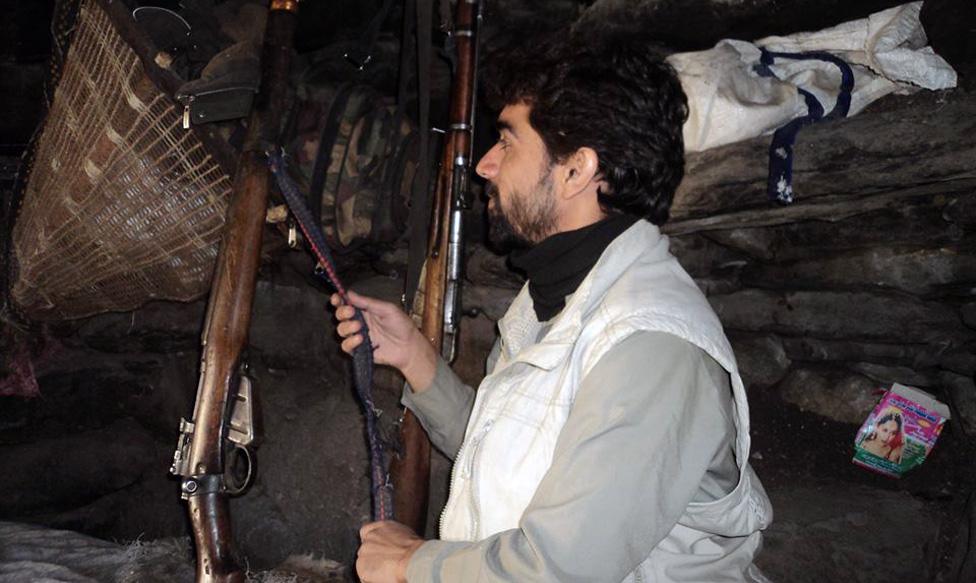
Nizami in an isolated village in the Hindu Kush - the two rifles are used to protect a villager's summer residence
Early last year one of the local commanders told me his plan was to make Kunar a second IS stronghold, like the one they have established in Syria and Iraq. The whole of this region would be part of a new province of the Caliphate known as Khorasan, the historic name for the region covering much of Afghanistan, Pakistan and Iran.
He said the plan was they would keep a low profile, quietly building strength and support locally. An FM radio station was set up to broadcast propaganda in the region.
But then the tactical errors began.
The main problem was the commanders just couldn't keep control of their own men. In July last year they got into conflict with the local Taliban and one of their top leaders. Then another commander started attacking government forces in the neighbouring province.
It has been a disaster for Da'esh. Instead of gradually planting deep roots they came out into the open and now they are being attacked from all sides.
The US has made Da'esh an official target in Afghanistan, and has launched a series of special forces operations and drone strikes, external against it in the last couple of weeks.
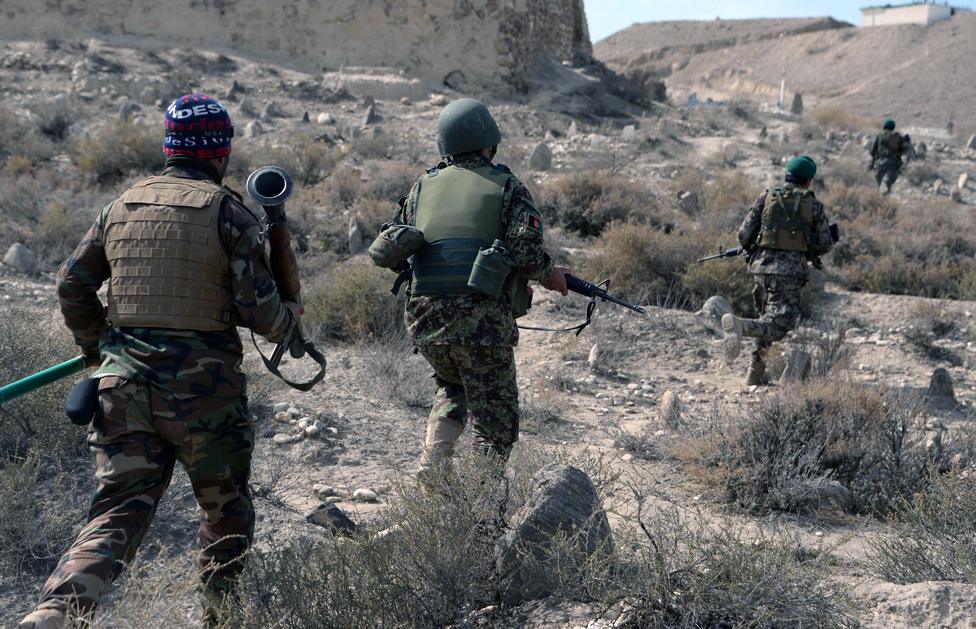
They are under assault from Afghan government forces and the Taliban, as well as local militias - everyone seems to be against them.
What is more they have lost the support of local people because they have brutally tortured and murdered innocent villagers.
The people I know who got involved with Da'esh are now keeping a very low profile. Lots of them were once Taliban fighters but it is very hard for them to go back.
Da'esh are much, much weaker now than they were even just a few weeks ago.
But I don't think we have seen the last of Islamic State in my region. Now the ideology and fighters are here it will very hard to get rid of them completely.
Subscribe to the BBC News Magazine's email newsletter to get articles sent to your inbox.